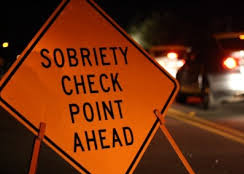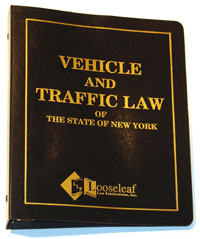Matter of Acevedo v New York State Dept. of Motor Vehicles
New York Court of Appeals
2017 NY Slip Op 03690
Decided on May 9, 2017
 Issue: Whether the 2012 amendments of 15 NYCRR 136.5(b)(3) fall within the scope of authority issued to the DMV by the NY State legislature; and whether the denial of relicensing applications constitutes an impermissible retroactive application of the Regulations and a violation of ex post facto.
Issue: Whether the 2012 amendments of 15 NYCRR 136.5(b)(3) fall within the scope of authority issued to the DMV by the NY State legislature; and whether the denial of relicensing applications constitutes an impermissible retroactive application of the Regulations and a violation of ex post facto.
Holding: The Court of Appeals affirmed the actions of the DMV, finding that 1) the State agency acted within the authority issued by the legislature; 2) there was no violation of the Separation of Powers; 3) there was no ex post facto violation.
Facts: The three petitioners, Kevin Acevedo, Caralyn Matsen, and Michael Carney were convicted of drunk driving. Acevedo and Matsens most recent drunk driving conviction was their third and Carneys latest conviction was his sixth drunk driving conviction.
Petitioners’ driver’s licenses were revoked pursuant to New York Vehicle and Traffic Law and their relicensing applications were denied pursuant to recent amendments adopted by the New York Department of Motor Vehicles (DMV). The petitioners challenged the validity of the regulations and sought to restore their driving privileges.
Analysis:
Statutory Background
VTL mandates permanent revocation for certain recidivist offenders, ie 3 drunk driving convictions in 4 years, or 4 convictions in 8 years. VTL ?1193(2)(b)(12). Permanent revocation follows ineligibility for relicensing. Permanent revocation is waived after either five or eight years, depending on the offender’s conduct and with compliance with imposed conditions. However, VTL 1193(2)(b)(12) provides that the DMV Commissioner may refuse to restore a license “in the interest of the public safety and welfare.”
Regulatory Scheme
The Commissioner of the DMV is authorized by New York Vehicle and Traffic Law to “enact, amend, and repeal rules and regulations” that affect the “exercise of the DMV,” including the administration of licensing procedures. VTL 215. In 2011, the DMV amended previous regulations from 1980, which had specified that the DMV would decline to issue a new license to an applicant with a history of alcohol or drug abuse with little evidence of rehabilitation. The new amendment allowed the DMV to evaluate an applicant’s entire driving history to determine whether the applicant was a “problem driver” to determine whether or not to deny the offender’s application. 15 NYCRR former 136.1(b); 15 NYCRR former 136.4(b).
After the DMV found that relicensed recidivist drunk drivers were still responsible for a disproportionate number of accidents, the DMV imposed a more extensive relicensing review process to individuals whose licenses were revoked for drug or alcohol-related offenses in 2012, including placing holds on relicensing applications for those with multiple alcohol-related violations.
The regulations, under 15 NYCRR 136.5(b), provide that the Commissioner of the DMV “shall deny the application” of relicensing if the applicant has “five or more alcohol or drug-related driving convictions or incidentswithin his or her lifetime” or “25 year look back period,” the applicant “has three or four alcohol or drug-related driving convictions or incidents” and “one or more driving offense.” 15 NYCRR 136.5(b)(1); 15 NYCRR 136.5(b)(2). A serious driving offense includes (i) a fatal accident; (ii) a driving-related Penal Law conviction; (iii) conviction of two or more violation for which five or more points are assessed on the record; or (iv) 20 or more points from any violations. NYCRR 136.5(a)(2).
Applicants with three or four alcohol or drug-related driving convictions or incidents within the last 25 years but no serious driving offenses within the last 25 years will be denied for “at least 5 years” in addition to the minimum statutory recovery period. 15 NYCRR 136.5(b)(3). After the five year waiting period, it is in the Commissioner’s discretion to approve the application.
Petitioners’ Challenges
Here, each petitioner was convicted of multiple drunk driving offenses, had their licenses revoked, applied for relicensing, became subject to additional review upon the enactment of the 2012 Regulations, and was eventually denied pursuant to 15 NYCRR 136.5(b). The petitioners appealed their respective denials, challenging the lawfulness of the Regulations as well as the application of the Regulations to their relicensing application.
Statutory Conflict
The New York Court of Appeals rejected the petitioners’ assertion that the Regulations conflict with the Vehicle and Traffic Law. The Court held that the statutory conflict relies on the flawed premise that an offender is entitled to relicensing under the VTL upon expiration of the statutory revocation period. Rather, the VTL expressly provides that the statutory revocation periods are “minimum” time periods during which an offender’s driver’s license must remain “revoked.” VTL 1193(2)(b). VTL provides that, following “the expiration of the minimum period,” relicensing applications are to be decided solely “in the discretion of the commissioner”?id.? 1193(2)(c). By design, then, the statutory scheme contemplates that the Commissioner will have exclusive authority over post-revocation relicensing, and that those relicensing determinations will be discretionary.
Separation of Powers
Petitioners also contended that the Regulations amounted to legislative policymaking–not administrative rulemaking–in violation of the separation of powers doctrine. Citing Boreali v Axelrod, the Court held that “the separation of powers doctrine gives the Legislature considerable leeway in delegating its regulatory powers” to an administrative agency to “administer the law as enacted by the Legislature.”?Boreali v Axelrod, 71 NY2d, 9-10 (1987).
No matter how facially broad, the Court of Appeals has made it clear that the legislature “cannot cede its fundamental policy-making responsibility to an administrative agency.”?id. at 9. Further, the Court held that an agency may not use its enabling statute “as a basis for drafting a code embodying its own assessment of what public policy ought to be.”?id.
The Court of Appeals outlined four factors set in Boreali v Axelrod (71 NY2d 1 [1987]) to address the separation of powers issue.
The Four Boreali Factors
The first Boreali factor examines whether the agency merely “balanced costs and benefits according to preexisting guidelines,” or instead made “value judgments entailing difficult and complex choices between broad policy goals to resolve social problems.” The Court held that, while the DMV did act with expeditious, effective and fair means, the aim of the Regulations–to protect the public from dangerous drivers–outweighs licensing interests of recidivist drunk driving offenders.
The second Boreali factor assessed by the Court considers whether the agency wrote on “a clean slate, creating its own comprehensive set of rules without the benefit of legislative guidance,” or whether it simply “filled in the details of broad legislation describing the over-all policies to be implemented.”?Boreali, 71 NY2d at 13. The Court held that, with the legislature’s establishment of rules to guide the Commissioner’s discretion, the Regulations fall within the confines of the statutory mandate and fill in the details of VTL the way legislature intended.
The third Boreali factor is whether legislature has unsuccessfully tried to reach agreement on the issue, which would indicate that the matter is a policy consideration for the legislature to resolve. The Court concluded that legislative inaction, because of its inherent ambiguity may be a basis for determining the action of the State agency acted without authority. Matter of Oswald N., 87 NY2d 98, 103 n 1 (1995).
Finally, the fourth Boreali factor at issue concerns whether any “special expertise or technical competence” was involved in the development of the challenged Regulations. Boreali, 71 NY2d at 14. The Court held that the Regulations operate squarely within the DMV’s expertise and that legislature delegated clear authority to the Commission over post-relicensing applications.
Retroactivity and Ex Post Facto
Petitioners finally urged that the denial of their applications constitutes an impermissible retroactive application of the Regulations and a violation of the Ex Post Facto Clause of the United States Constitution. The Court of Appeals rejected this argument.
Noting that New York law generally does not have a history of favoring retroactive operation, the Regulations were not impermissibly applied retroactively to the petitioners’ applications simply because the Commissioner considered prior conduct–namely, the drunk driving offenses–that predated the Regulations. Regulations, as the Court previously noted, are not retroactive “when made to apply to future transactions merely because such transactionsare founded upon antecedent events.”?Forti v New York State Ethics Commn, 75 NY2d 596, 609-610 (1990). However, here, the Court held that the petitioners’ denials following the enactment of the 2012 Regulations were not based on prior conduct, but, rather, the Regulations applied only to the Commissioner’s prospective consideration of the petitioners pending relicensing applications–a future transaction.



